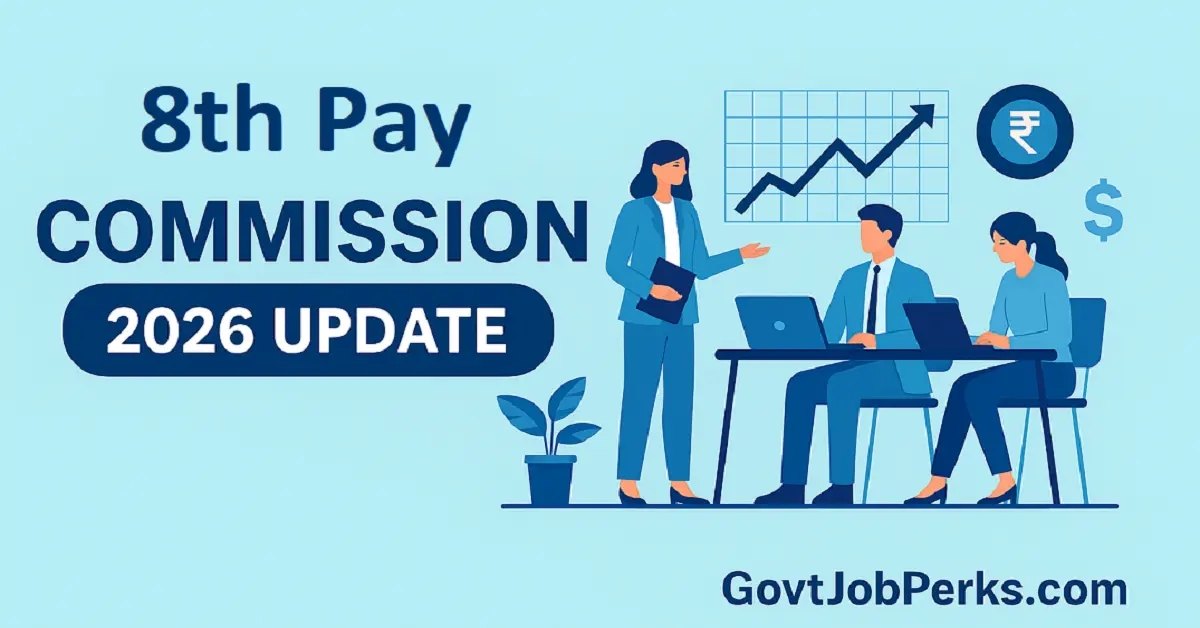8th Pay Commission: Latest Updates, Salary Hike, Timeline & What to Expect in 2026
The long wait for the 8th Pay Commission is finally over. The central government has officially approved the Terms of Reference (ToR), and the commission is now on track to recommend the next salary revision for central government employees and pensioners. If you’re wondering what’s coming—salary hikes, timeline, fitment factor, or how it’ll impact you—this post covers everything in a clear and simple way.
What Is the 8th Pay Commission?
The Pay Commission is a government-appointed panel that reviews the salaries, pensions, and allowances of central government employees every 10 years. The 8th Pay Commission will impact over 50 lakh central employees and around 70 lakh pensioners. State governments often follow the central structure with some tweaks, so this will eventually benefit state employees too.
The 8th Pay Commission was officially cleared by the Union Cabinet in October 2025. Headed by Justice Ranjana Prakash Desai, the commission will submit its report in about 18 months.
From When Will the 8th Pay Commission Be Implemented?
As per current updates, the new pay scale is expected to be implemented retrospectively from January 1, 2026. This means even if the report comes later (likely mid-2027), employees will receive arrears for the period starting January 2026.
This timeline is similar to what we saw with the 7th Pay Commission. The 7th CPC was announced in 2014 and implemented from January 2016, so a 2-year cycle is quite normal.
How Much Salary Hike Can Employees Expect?
The biggest question on everyone’s mind: How much will the salary increase?
Though the final figure isn’t out yet, the expected fitment factor (which multiplies your current basic pay) is estimated to be around 1.8 to 2.86. For reference, the 7th CPC used a 2.57x factor. If the government approves a 3.0x factor, your basic pay could increase by 25–30%.
Want to estimate your new salary? Use our 8th Pay Commission Salary Calculator:
👉 Click here to calculate your new salary
Pensioners & Family Pension: What’s Changing?
Pensioners are likely to see a similar increase, as pensions are usually revised using the same fitment factor. There’s also growing demand to raise the minimum pension from ₹9,000 to at least ₹25,000.
Some pensioner groups are pushing for:
- Full pension after 12 years of service instead of 15
- Fair Dearness Relief (DR) without discrimination
- Revision of family pension rules
Employee Demands & Political Angle
Employee unions have been very active. They’re asking for:
- Higher minimjustify-textum pay
- Merger of certain pay levels
- More rational promotion structure
Politically, the timing of this announcement is key. With elections on the horizon in a few states, some experts believe the 8th CPC will play a big role in gaining support from government staff and pensioners.
Historical Comparison: What Happened Last Time?
Let’s rewind a bit. The 7th Pay Commission came into effect in 2016:
- Minimum pay rose from ₹7,000 to ₹18,000
- Fitment factor: 2.57x
- Overall salary hike: around 23.5%
If the 8th CPC uses a higher factor, this revision could be even better.
Will State Government Employees Benefit?
Yes, but not immediately. First, the central government implements the new pay structure. Later, most states follow the same pattern, sometimes with their own adjustments. So even if you’re a state employee, stay tuned—your pay hike could follow soon after the centre’s announcement.
Final Thoughts: What You Should Do Now
The 8th Pay Commission is in motion and 2026 is shaping up to be a milestone year for salary hikes. Whether you’re a central employee, pensioner, or hopeful job aspirant, this update affects your financial planning directly.
✔️ Stay updated on timeline announcements
✔️ Explore how the hike affects your salary with our easy 8th Pay Commission Salary Calculator

